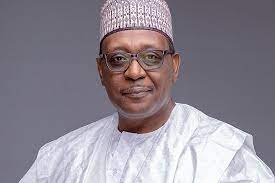The Federal Ministry of Health has intensified efforts to integrate adolescent-specific services into primary healthcare level in the country.
The Coordinating Minister of Health, Prof. Muhammad Ali Pate, stated this yesterday in Abuja during the commemoration of the International Adolescent Health Week, organised by the ministry in collaboration with the African Health Budget Network (AHBN).This year’s theme is ‘Building Adolescents’ Resilience’.
He said the ministry does this through initiatives like the Adolescent Girls Initiative for Learning and Empowerment (AGILE) Project, which ensures that adolescent girls have access to menstrual hygiene, reproductive health education, and mental health support services.
He said the ministry is working to improve adolescent nutrition, combat gender-based violence, and ensure young people have the information they need to make informed decisions about their health and future.
NOA seeks media support to promote essential family practice campaign
Prof. Pate said adolescents face challenges ranging from mental health issues, gender-based violence, substance abuse, and risky sexual behaviours, bullying in addition to structural barriers like poverty, poor access to quality healthcare and lack of education.
While saying that the health and well-being of adolescents will determine the trajectory of our nation’s progress, he stressed that ensuring their health and resilience is not just an investment in their personal futures but an investment in the future of our communities, our economy, and indeed, our country.
He said,” one of the most pressing issues facing adolescents today is mental health disorders such as depression, anxiety, etc, which are on the rise, with many young people suffering in silence due to stigma, lack of awareness, and insufficient access to care.”
“Mental health issues, such as depression and anxiety, are pervasive in workplaces globally, impacting productivity, attendance and overall performance. When left untreated, the staggering economic cost is estimated at US$1 trillion annually according to WHO,” he stated.
The World Health Organisation (WHO) Representative to Nigeria, Dr Walter Kazadi Mulombo, said in 2019, 15% of working age adults was estimated to have a mental disorder at any point in time.
He said out of this number more than 300 million people were living with anxiety, 1.3 million people living with depression, 1.64 million people living with schizophrenia or bipolar disorder and 703,000 people died by suicide globally.
He said working people, like all people, deserve an inherent right to the highest attainable standard of mental health at work, regardless of their type of employment, and that people living with mental health conditions have a right to access, participate and thrive in work.

 Join Daily Trust WhatsApp Community For Quick Access To News and Happenings Around You.
Join Daily Trust WhatsApp Community For Quick Access To News and Happenings Around You.


